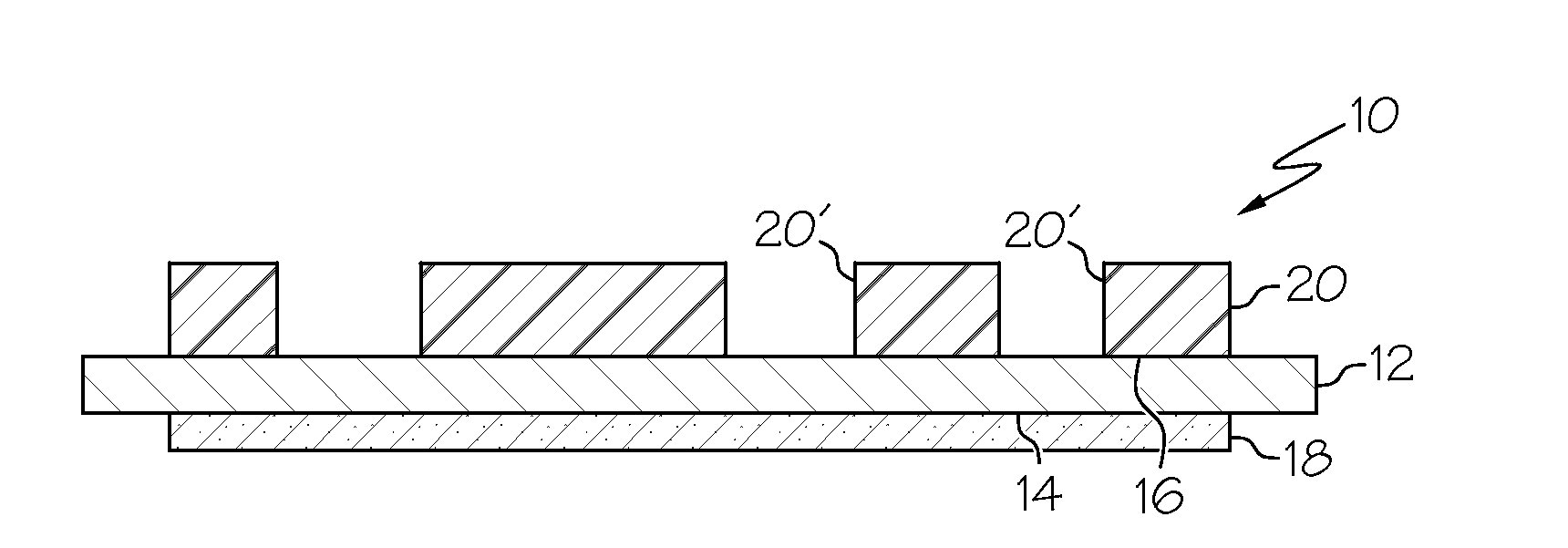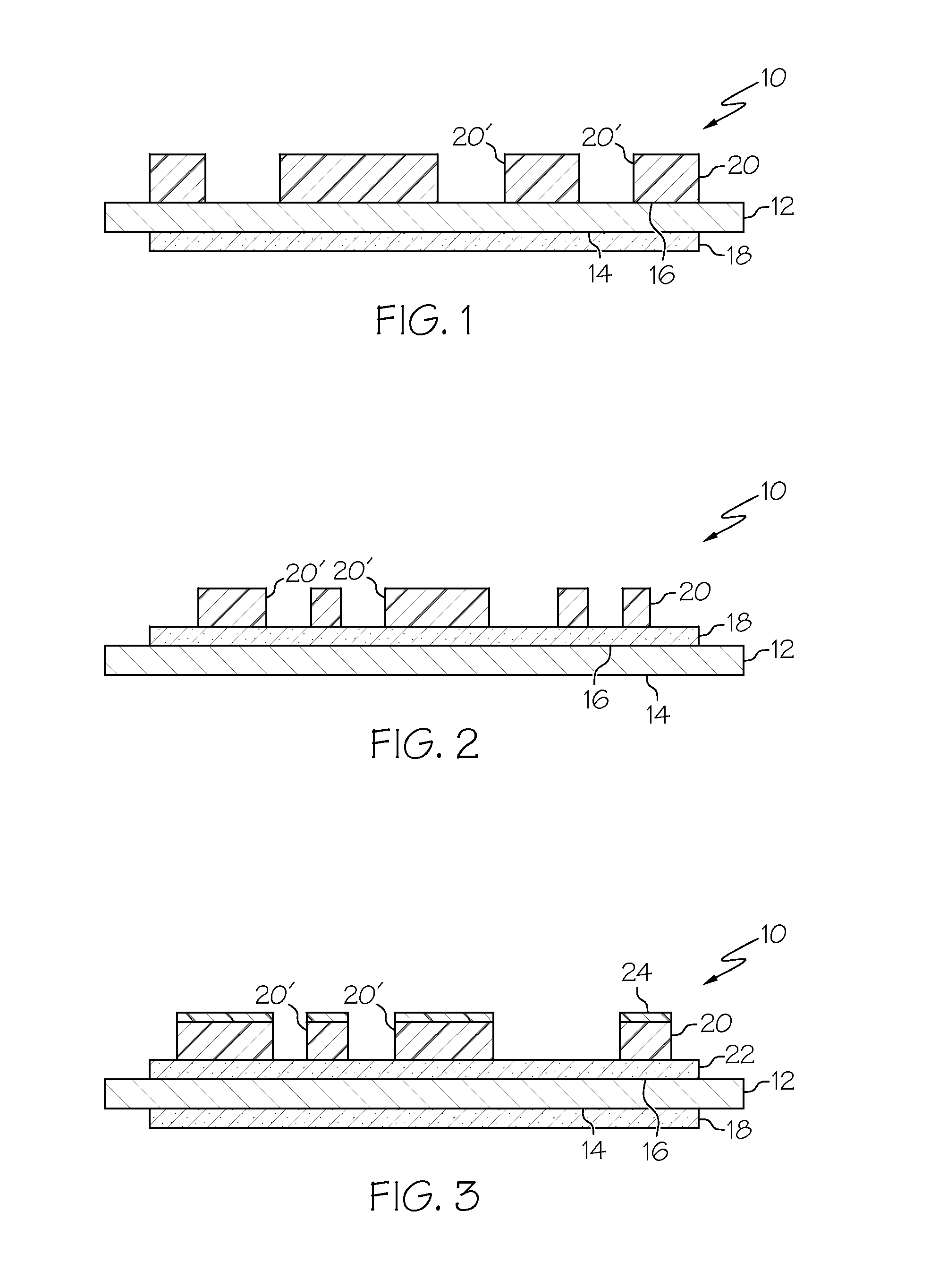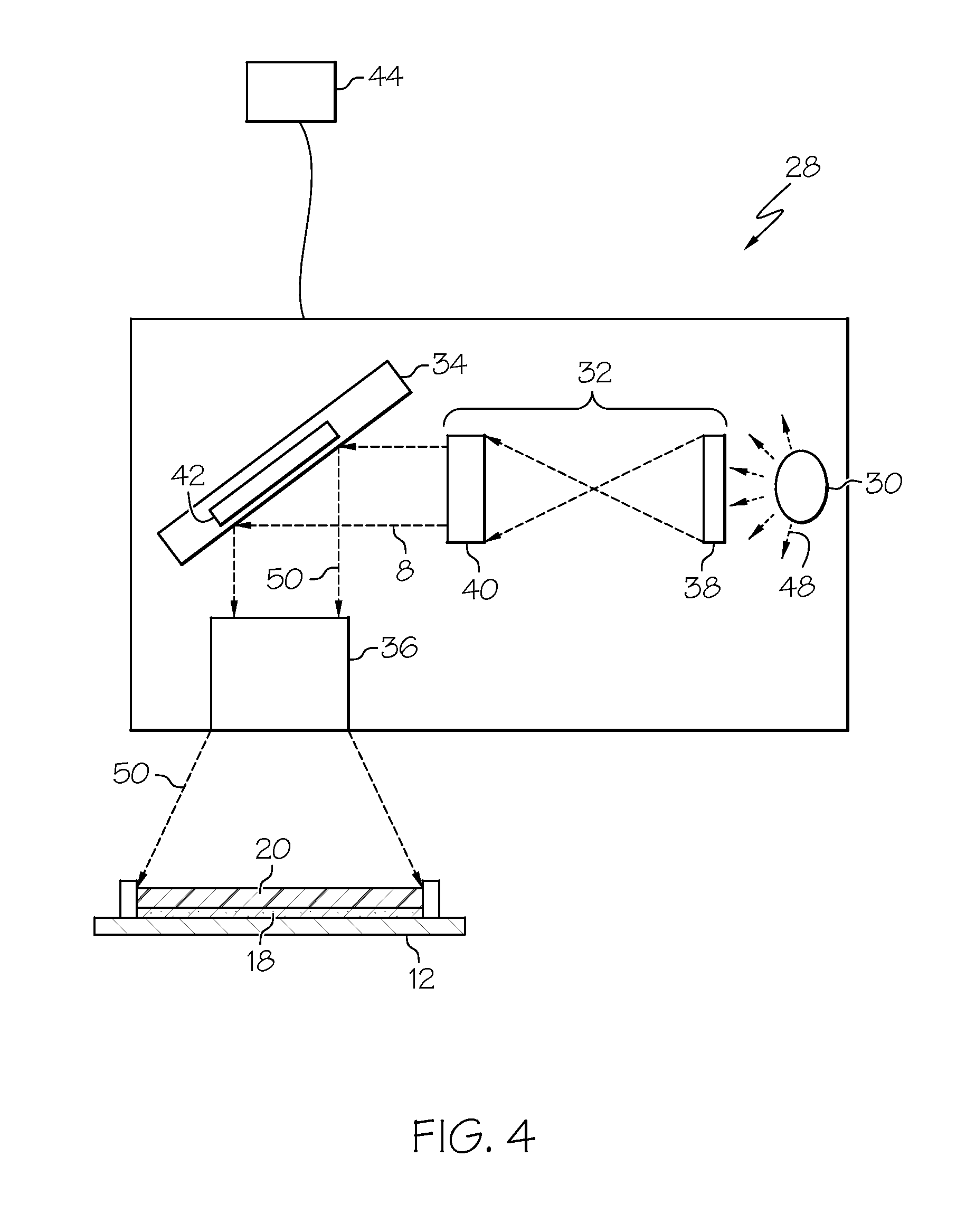Flexographic printing plate assembly
- Summary
- Abstract
- Description
- Claims
- Application Information
AI Technical Summary
Benefits of technology
Problems solved by technology
Method used
Image
Examples
Embodiment Construction
[0031]The practice of embodiments of the present invention provides several advantages over prior art methods and products which utilize a separate printing plate, cushion layer, and carrier layer, all of which must be assembled prior to use. By supplying a printing plate assembly including integral carrier, cushion, and photopolymer layers, an end user does not have to assemble the separate components prior to use, resulting in lower labor costs. In addition, the relief image depth may be more precisely controlled because the integral unit does not require a prior art back-exposure step, which has resulted in variations in floor thickness. Rather, the integral assembly and method of the present invention provides the formation of a relief image depth in the photopolymer layer of the integrated assembly in one step. The dimensions and layer thicknesses of the carrier, cushion and photopolymers can be precisely controlled and result in a final product which is ready for printing.
[003...
PUM
 Login to View More
Login to View More Abstract
Description
Claims
Application Information
 Login to View More
Login to View More - R&D
- Intellectual Property
- Life Sciences
- Materials
- Tech Scout
- Unparalleled Data Quality
- Higher Quality Content
- 60% Fewer Hallucinations
Browse by: Latest US Patents, China's latest patents, Technical Efficacy Thesaurus, Application Domain, Technology Topic, Popular Technical Reports.
© 2025 PatSnap. All rights reserved.Legal|Privacy policy|Modern Slavery Act Transparency Statement|Sitemap|About US| Contact US: help@patsnap.com



